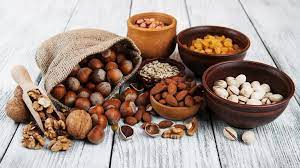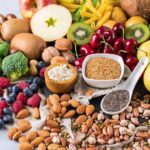In these times of excess, giving our digestive system a little rest is vital. Aware that eating is part of the way we celebrate Christmas in Spain, what Mercadona proposes is not to give up snacking, but to opt for a healthier one.
The novelty this time combines two superfoods: nuts, through one as special as the cashew, and the fruit antioxidants provided by dehydrated blueberries.
Although these two foods are often looked at askance when they are sold fried or with added sugars, this time the Valencian chain offers them to us in one of its healthiest formats: roasted cashews without salt and natural fruit.
This mix arrives at the supermarket in a 200 gram package with a retail price of 2.60 euros. It is a product made at Importaco Casa Pons, the company based in Beniparrell, Valencia.
The ingredients
In the list of ingredients we find that 50% of its content is toasted cashews, since it is a dried fruit that cannot be eaten raw, and another 50% is dehydrated cranberries, which they specify that they have been processed with juice. concentrated apple and refined sunflower oil, the only drawback we could mention about the product.
They warn that the product is packaged in a protective atmosphere and must be protected from light, in addition to being stored in a cool, dry place. Furthermore, once opened, they recommend that we consume the product within a week at most.
If we go to the table of nutritional values, we find that per 100 grams of product we have 459 calories. In the lipids section, there are 22.6 grams of fats – of which 3.9 grams are saturated -, 14.3 grams of monounsaturated and 4.4 grams of polyunsaturated.
It also has 51 grams of carbohydrates – 34.1 grams of them corresponding to naturally present sugars -, 4 grams of dietary fiber, 11.3 grams of protein and 0.02 grams of salt, a healthy amount if we take into account that The World Health Organization (WHO) estimates the daily maximum at 5 grams.
The calorie question
The calories in cashews are often scary and there are many people who try to avoid them due to their fat content, but the reality is that their percentage is lower than that of walnuts or almonds, for example.
In addition, its proportion between saturated, monounsaturated and polyunsaturated is close to what nutritionists consider ideal. Thanks to this, they provide a feeling of satiety that helps you not overeat. They are also beneficial for keeping cholesterol and triglycerides at bay, taking care of cardiovascular health.
The proteins in cashews are of quality and they also highlight minerals such as magnesium, which take care of the bones and the nervous system. It is a source of tryptophan, an amino acid that is a precursor to the synthesis of serotonin, the neurotransmitter that is related to a feeling of well-being and improves metabolic parameters such as sugar levels.
The recommended serving of cashews is about 20 or 30 grams a day, about 18 or 20 seeds, whatever fits in one hand. In this case, it must be taken into account that the Hacendado mix, when mixed with the fruit, the portion will be smaller.
Regarding the properties of blueberries, it is a ‘superfruit’ because it is antioxidant, anti-inflammatory, heart-healthy and strengthens the immune system. It is a food with a high nutritional percentage and very little fat, with polyphenols and flavonoids as the most attractive elements, along with anthocyanins and carotenoids, responsible for its characteristic color.
All of these components protect cells from free radicals and prevent neurological deterioration, improving functions such as memory.
About dried fruit
The question is: does dehydrated fruit retain the same properties? In essence yes. The process consists of eliminating the abundant water it contains through drying or freeze-drying tunnels. The Organization of Consumers and Users (OCU) explained that during dehydration “no ingredients such as sugars or fats are added, so it is equivalent to fresh fruit.”
However, in the case of the Mercadona mix, apple juice and sunflower oil are added, which would worsen the nutritional profile.
In general terms, the consumption of dehydrated fruit is healthy. This was confirmed in 2017 by the journal Nutrition Research, publishing a review of 13,000 Americans who provided medical data for its epidemiological studies. Those who often ate this food had better general health parameters, fewer chronic diseases and less overweight than those who did not. However, experts point out that you have to be careful with equivalences because the caloric density is much higher.













